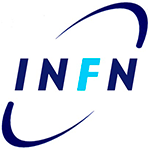Dr. Sreetama Das
Permutation-equivariant quantum convolutional neural networks
Quantum convolutional neural networks (QCNNs) are parametrized quantum circuits composed of quantum analogs of convolutional and pooling layers. They have shown promising efficiency in classifying topological phases of quantum many-body systems as well as classical images. When the class labels of the underlying dataset remain invariant under action of certain symmetry groups, one can build Equivariant QCNN (EQCNNs) which respects that label symmetry. EQCNNs have less number of trainable parameters, improved generalization and sometimes better accuracy compared to a non-equivariant QCNN. The Symmetric group S_{n} manifests itself in large classes of quantum systems as the invariance of certain characteristics of a quantum state with respect to permuting the qubits. The subgroups of S_{n} arise, among many other contexts, to describe label symmetry of classical images with respect to spatial transformations, e.g. reflection or rotation. In our work, we propose the architectures of EQCNNs adherent to S_{n} and its subgroups. We demonstrate that a careful choice of pixel-to-qubit embedding order can facilitate easy construction of EQCNNs for small subgroups of S_{n}. In this case, our numerical results using MNIST datasets show better classification accuracy than non-equivariant QCNNs. Our novel EQCNN architecture corresponding to the full permutation group S_{n} is built by applying all possible QCNNs with equal probability, which can also be conceptualized as a dropout strategy in quantum neural networks. The S_{n}-equivariant QCNN architecture shows significantly improved training and test performance than non-equivariant QCNN for classification of connected and non-connected graphs. When trained with sufficiently large number of data, the S_{n}-equivariant QCNN shows better average performance compared to S_{n}-equivariant QNN. These results contribute towards building powerful quantum machine learning architectures in permutation-symmetric systems.





